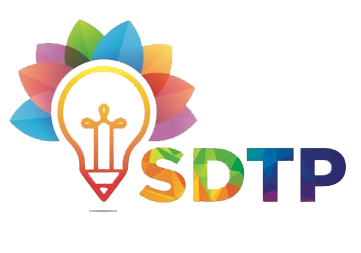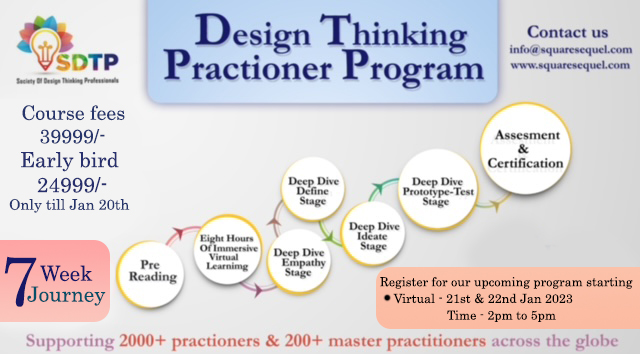Jahnvi was stepping into the leadership position for the first time, and it was daunting for her, even when she felt prepared to handle the new responsibilities. She was about to go from focusing primarily on her work quality to overseeing an entire team’s output. When she started with her new job title as the manager of her team, it all felt overwhelming to her. She knew it would be complex to navigate the relationship between her team and herself, however, she was ready to go to any lengths to be an excellent leader to her team and organization.
She knew she could not move a mile without knowing what it takes to be a leader, so she started venturing into the right mindset and approach of an efficacious leader. On her journey so far she has discovered the requisites of becoming a first-time manager, her values, locus of control, setting goals and achieving them, her learnings from The Strangest Secret, and how to handle the missed goals. She has successfully discovered the first and the most critical aspect of becoming a leader, i.e. Managing Self and now it’s time for her to take a step forward to the next aspect, i.e. Managing Others.
When it comes to effectively managing people, the right actions and strategies can be extremely beneficial to all parties involved. Whether you’re in charge of one person or an entire team or organization, developing the right behaviors can help you succeed.
The first step is to determine which behaviors bring out the best in others. Jahnvi approached this by recalling those who have successfully managed her. What did they do or did not do? How did she deal with compliments, feedback, and constructive criticism?
Next, she considered her coworkers and colleagues. How have they reacted to their managers, both positively and negatively? This provided her with an understanding of some of the common themes in successful management. One thing that intrigued her interest was feedback. In further research, she found some great insights that could help her as well as her team to soar high with success.
“Feedback is the breakfast of champions.”
– Ken Blanchard
The fuel that drives growth and excellence is feedback. We all depend on feedback to keep us on track, and to know what we are doing well and what we need to improve. Entrepreneurs and small business owners must master the art of effective feedback in this time of anxiety and uncertainty.
Mihaly Csikszentmihalyi, a psychologist, identifies feedback as one of the keys to what he calls “optimal experience” — whether at work or play — in his book Flow. He writes that one of the reasons games are so conducive to flow is that they provide immediate, practical, actionable feedback. When we play golf and hit the ball far to the left, we immediately realize we need to correct our form.
In business, feedback has become synonymous with things like performance reviews. According to Gallup, only 14% of employees believe that performance reviews motivate them to improve. Looking in the rearview mirror is what performance evaluations are all about. Looking ahead to the future and usable “live” feedback in the present, on the other hand, is what best motivates people.
This made her dwell in the realms of feedback skills a little longer to understand them better so she could use them in practice effectively.
What Is Feedback And Why Is It Important?

Feedback is a process of giving and receiving information, opinions, or comments about someone’s performance, behavior, or work. It is a way to evaluate and improve oneself or others by providing constructive criticism, positive reinforcement, or suggestions for improvement. Feedback can be delivered verbally, written, or through other mediums, such as body language or facial expressions. It is an essential part of communication and helps individuals and organizations to grow and develop.
“We all need people who will give us feedback. That’s how we improve.”
—Bill Gates
Employee feedback is an important part of management communication. Feedback encourages professional development and skill mastery in the workforce. It can also instill confidence and increase job satisfaction in the workplace. When asked, most people, particularly millennial employees, will admit that they want feedback on their performance.
It increases motivation
The feedback process informs you of your employees’ strengths and weaknesses and serves as a guideline for their development. Understanding your subordinate’s ability is a critical step in leading your team to success as a manager; show your appreciation and recognition whenever they achieve something.
Telling them they’re doing well because they exceeded their goal by 10% is more effective than simply saying “you’re doing a good job.” In addition, instruct them on which areas they need to improve to meet the performance expectations.
It enhances personal improvement
“No feedback, no correction, and no correction, no growth.”
Feedback should be given on a regular and constructive basis. People are more likely to respond positively and helpfully to comments. Giving the appropriate response can result in a better outcome and even more success. Furthermore, through the feedback process, employees can understand the expectations in their behavior and performance, as well as whether they require additional training or not.
Feedback can also aid in the identification and resolution of problems. From a minor issue to a larger issue that is holding your team back, the feedback process is an excellent opportunity to bring the team together and identify the root cause as well as a solution.
It builds and strengthens relationships at work
“Feedback is a powerful way to propel your career forward.”
Your employees usually crave feedback because it is critical to their professional development. Frequent feedback can increase their engagement with the organization and motivate them to do a better job on their assigned tasks.
The feedback process necessitates the entire team working together to plan and review each other’s performance while also facilitating communication between peers and between managers and employees. Feedback connects managers and their employees on a professional and personal level, increasing employee engagement and reinforcing the company culture.
Jahnvi clearly understood that creating a regular feedback procedure would allow her team to speak their minds and put forth their ideas for the project. She knew with proper performance assessment, she will strengthen the relationship with her team and it will benefit her personal growth as well.
She went down memory lane when she received feedback from her seniors and how it propelled her professional journey. She recalled her mentor and superior talking about the term ‘helpful feedback,’ which says, “When it comes to feedback, what is the intention behind the words – is it to help or to hurt?
Feedback is not just about conveying the message, it is about clarifying your intentions. If the intention is to assist, we proceed to the next steps. If the intention is to hurt, we return to the intention step until we find the helpful intention that is causing the feedback.
Sometimes we discover that there is no helpful intent. There are times when someone wants to give another person “feedback,” however, what they want is to vent their frustration or anger on someone else. That is not a form of feedback.
What is feedback? Specific observations intended to assist someone in comprehending:
- What would you do differently or start doing with a clean slate?
- What is not working, and do you want to stop doing it?
- What is something that you want to continue doing?
Here are some rules to follow when we have feedback on the table.
- There should be intent.
- The intent defines the outcome of the feedback.
- Feedback is not a criticism.
- Feedback is to be given and received as a gift.
- Feedback is highly perception-driven, and perception is the perceiver’s reality.
- Feedback is not advice.
- Feedback adds value to the receiver.
When complex information is delivered with compassion, the person is more likely to understand their situation and take positive action to achieve the desired outcome. These insights about feedback made her remember her journey as an early bird and how they helped her soar high.
It made her value the importance and impact of feedback and she felt the need of sharing the benefits of feedback that she experienced herself.
What Are The Benefits Of Feedback?

Giving constructive feedback benefits both managers and companies. Constructive feedback can inspire people to learn more and push them to be their best. When insightful feedback is delivered thoughtfully and objectively, it can show people you value them, boost their confidence, and inspire them to learn and grow.
Employees who receive regular feedback are more engaged, productive, and less likely to leave their organizations, according to research. Here’s a closer look at the statistics:
- Employees are eager to receive feedback. 68 percent of employees want more feedback.
- Feedback boosts productivity. Employees say the most important thing their manager could give them to inspire them to do great work is recognized. Furthermore, 80 percent of employees prefer on-the-spot recognition to formal reviews.
- Feedback boosts engagement. 43 percent of employees who rated themselves as highly engaged said they received feedback at least once a week.
- Feedback lowers attrition. People who receive regular feedback are more engaged and productive, and 15 percent less likely to leave.
The advantages of regular, timely feedback are obvious. Workers want more feedback, however, 55 percent of managers believe they provide adequate feedback. Many managers dislike giving negative feedback to their direct reports and actively avoid doing so until performance reviews or a larger issue arises. Furthermore, 44 percent of managers said it is difficult and stressful to share negative feedback. However, deferring sharing negative feedback can harm working relationships, impede an employee’s ability to grow personally and professionally, and even have an unfair impact on disadvantaged groups.
Jahnvi understood it is preferable to address an issue early to raise employee awareness and give them time to correct or improve themselves. Furthermore, the more effective feedback she gives (and receives), the easier it becomes. She was determined to share constructive feedback with her team regularly to enhance team performance altogether.
We have talked about the ‘why’ part of the feedback here and will take the foot forward to the ‘how’ part in our next article. We will discuss the concept of “feed-forward” by Dr. Marshall Goldsmith and how to do things differently.
To be continued…
https://blog.trginternational.com/3-reasons-why-having-management-feedback-is-important
https://www.snapsurveys.com/blog/5-reasons-feedback-important/
https://www.businessnewsdaily.com/6456-new-manager-tips.html
https://news.utexas.edu/wp-content/uploads/2022/09/iStock-1078228862.jpg
Written By: Jimmy Jain
Edited By: Afreen Fatima
Society of Design Thinking Professionals









